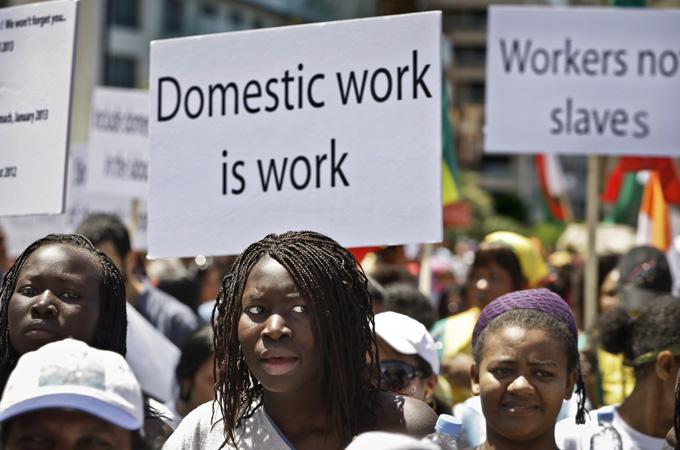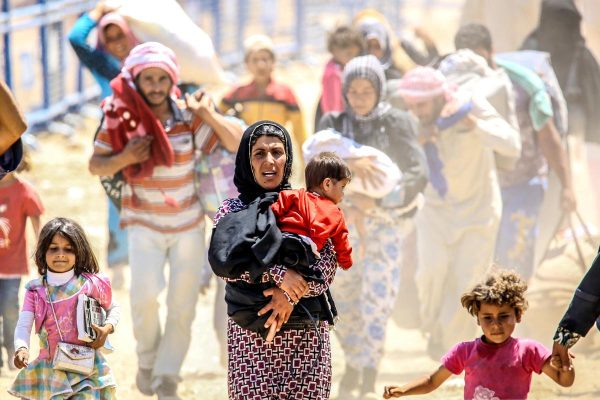The Exploitation of African Workers
Migrant domestic workers, hold banners demanding basic labor rights as Lebanese workers, during a march at Beirut’s seaside, Lebanon, Sunday, April 28, 2013. More than 200,000 workers mostly women from Asia and Africa work as maids in a country of 4 million people, many also come from places as far as Madagascar and Nepal, but the majority are from Sri Lanka, the Philippines, Ethiopia and Eritrea. (AP Photo/Hussein Malla)
Slavery is often pictured as an evil of the past, an event that we read about in history books, something we relive while watching movies like Amistad. Sadly, in the Middle East that is not the case. For many Africans, the idea of slave labour is not cliché but a reality. Due to the fact that Africa is still developing, some people, especially women, have a hard time finding jobs. Many women (and a significant amount of men) are lured into the middle east with the promise of a good paying job. “There have even been reported instances of people who have had to be treated for dog bites while others have been attacked with candles after trying to negotiate for better-working conditions”(Kagure Mugo)
There is also the deeper issue of racism accompanied with xenophobia, this causes workers to view immigrants as ‘Job stealers’. Employers feel as if they can do whatever they want with the workers, and citizens often hold their noses whenever they walked by. With the 2022 world cup coming up and Qatar preparing for it, reports have surfaced that at least one worker dies a day while working at the stadiums. Many workers have had their passports taken away and denied access to free drinking water. In places like Jordan, child labor has risen with 30,000 children working, many who instead of going to school hawk items on the streets for a living.
The most blatant form of modern-day slavery lies with African asylum seekers, who are mainly Sudanese and Eritrean. They face the risk of commercial and sexual exploitation while also dealing with brutal forms of racism. These events happening have been ignored and are not receiving any amount of outrage from the international community. It is almost like we have jumped from one slave master into another one. We’ve always been good at applying teaching from our past to present day situations, international communities need to address this situation on a national and continental level in the middle east and abolish it.
http://thisisafrica.me/africans-new-slaves/
http://www.albawaba.com/news/middle-east-slavery-528324

Hello. My name is Jediael Peterson and I'm a senior at Sandy Spring Friends school. I'm the videographer for the Wildezine which means I record videos...






